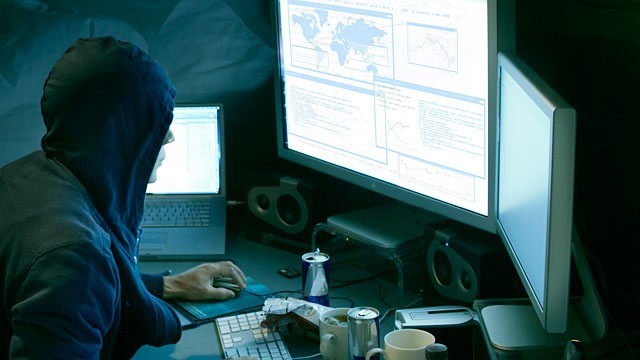It’s often said that no foreign country would ever invade the United States because of all of the armed citizens in this nation willing to defend our homelands. While this might have been true during WW2, in 2013 things are very different. A foreign power no longer needs to go “mano y mano” with a superpower like us, when with a few clicks of a mouse (of course I’m over simplifying) they can bring our country to its knees. What if tomorrow power grids all over the US were shut down remotely, electronic bank accounts were simply wiped clean and satellites were disabled. In an instant all of our lives would change and vast majority of the population would be helpless. The power in your home: gone. Water supply: shut off. Bank account: gone. Job: gone. Cell Phone: disabled. Television: gone. Hospitals: On generator power until the fuel ran out, and then it’s game over. It would be back to the stone age with the click of a mouse and there was no warning whatsoever. There would be no launch of a rocket which preceded an EMP strike, no solar flare which would give us a couple days to prepare and no landing of millions of foreign invaders on our shores to bring about this carnage. Just a group of well trained individuals in a room somewhere a few thousand miles away with access to all of the necessary code which would be needed to “flip the switch” to put us in the dark.
This threat should not be overlooked, after all it has been proven that our systems are indeed vulnerable:
4- BofA, JPMorgan, Citi Repeatedly Hacked by Iran
5- Power Plant Controllers Hacked, Prisons Cracked
We are indeed vulnerable and various officials have acknowledged the threat we face.
But security experts have increasingly come to see both political and industrial espionage as the work of professional intelligence agencies. This view has given added credence by a new report from the computer security firm Mandiant. According to Mandiant, the Chinese army is running a veritable hacking factory in the suburbs of Shanghai – and doing contract work for China’s vast state-owned companies.
Just think about all of the 2nd and 3rd order effects beyond what is on the surface when it comes to the carnage which would certainly follow a massive cyber attack. All of those who are on some form of public assistance would no longer be able to get their food, looting and rioting would be rampant across the country. Lines of communication would be down and the scope of the carnage would be so great that there would simply be no way for Federeal/State/Local government to react in order to provide assistance. It truly would be a case of every community for themselves and I’m here to tell you that this is not just my speculation, but likewise the opinion of many who have conducted extensive research into this ongoing threat.
Such an attack could be launched for diverse purposes against many aspects of our society. But the most paralyzing would be an attack on the electrical system; on the controllers that run power plant operations and the grid, from coal to nuclear to natural gas to wind turbines and other renewables. Such a coordinated attack could bring the United States to its knees for days or weeks with traffic jams, abandoned cars, closed airports and hospitals reliant on emergency generators while fuel supplies last.
So what are we to do about all of this? Unfortunately it’s not as easy as making sure your Anti-Virus is up to date on your laptop or shredding your mail before tossing it out. These are problems which exist on a strategic level and so all we can do is try to be ready for the moment should it ever occur. I recently wrote an article which detailed 7 actions to take immediately following an EMP strike, and I would think that it is very applicable to the circumstance as well. More than anything stay focused, informed, and be prepared for the worst case scenario. There are many threats to our current way of life from economic collapse to cyber attacks. Just know that if the lights go out and everything comes grinding to a halt, it probably wasn’t because the DOW crashed on Wall Street.










9 comments
Skip to comment form
Totally agree. I was just having this conversation a week ago. The days of flying airplanes into buildings are over. When the banks got hacked, i figured it was like a test run. I would assume (dangerous, I know), that its got to be tough to hack the financial world. This is what everyone should prepare for, and the after effects.
Author
There are a few reasons I think China would hold off on cyber Armageddon. We owe them so much money, plus our people buy so many of their goods, it would be taking out their best customer. Then again they might feel like it’s worth it which is why we should be prepared for the worst.
Author
And a few more recent hacks on prominent companies prove that nobody is safe:
Microsoft confirms hack attack mirroring recent Facebook break-in
Hackers hit Apple in cyberassault
An easy fix for this technically is to create a separate network for all the power plants, banks government agencies and remove them from the normal internet.
Author
That seems like a great option, but I wonder how realistic that would be. Employees in gov’t agencies send emails daily and so do those in banks. Banks send and receive wire transfers daily as well. Even if you could totally isolate a network and remove it from the web, it would still require hardware and software updates/maintenance, and if the bad guy could infect those items prior to having them installed that’s another way in. Or something as old school as having a mole on the inside planting a thumb drive which a clueless employee plugs into their work station…
The list goes on and on.
What becomes even more scary is the connections being made between large internet corporations and government agencies. “Voluntary” cooperation is supposed to make everything sound less threatening, but could you imagine any one entity with all of the information that is kept track of in databases around the world?
The internet is dying, rotting from the core. Freedom of speech and information is becoming ways to track and predict behavior. People are so hung up on guns and taxes right now (not that there isn’t good reason to be) they don’t seem to notice all of the other things going on.
Scary stuff…
Author
Stuart,
I agree the internet is dying, becoming “connected” is ever important and most voluntarily toss aside any thoughts of maintaining personal privacy in order to follow the status quo. Freedoms online are being chipped away at daily and as you mention almost all of us have our personal information (in various forms) stored in databases all around the world. We give it to one company, maybe for health reasons or online billpay, and it is compromised to another source. By the time people realize what is going on it will be far too late.
I am all for convenience… And I love that certain things interface with other things, and the ease of use that comes with that. But this CISPA stuff scares the hell out of me. At what point do my facebook posts and browser history need to become government property?
Freedom a speech, the right to bear arms, and privacy are large parts of what make this country so great, and it’s odd to me to see the same people fighting for the right to protect themselves are some of the very same people eroding the walls between what’s private and what’s government property.
I think my point lost some efficacy in my attempt to phrase this delicately, but the basic idea is still there.
Author
Stuart,
Your point is well made and well received. The line is beyond blurred (government intervention) and it’s going to get worse. Thanks for the comment.